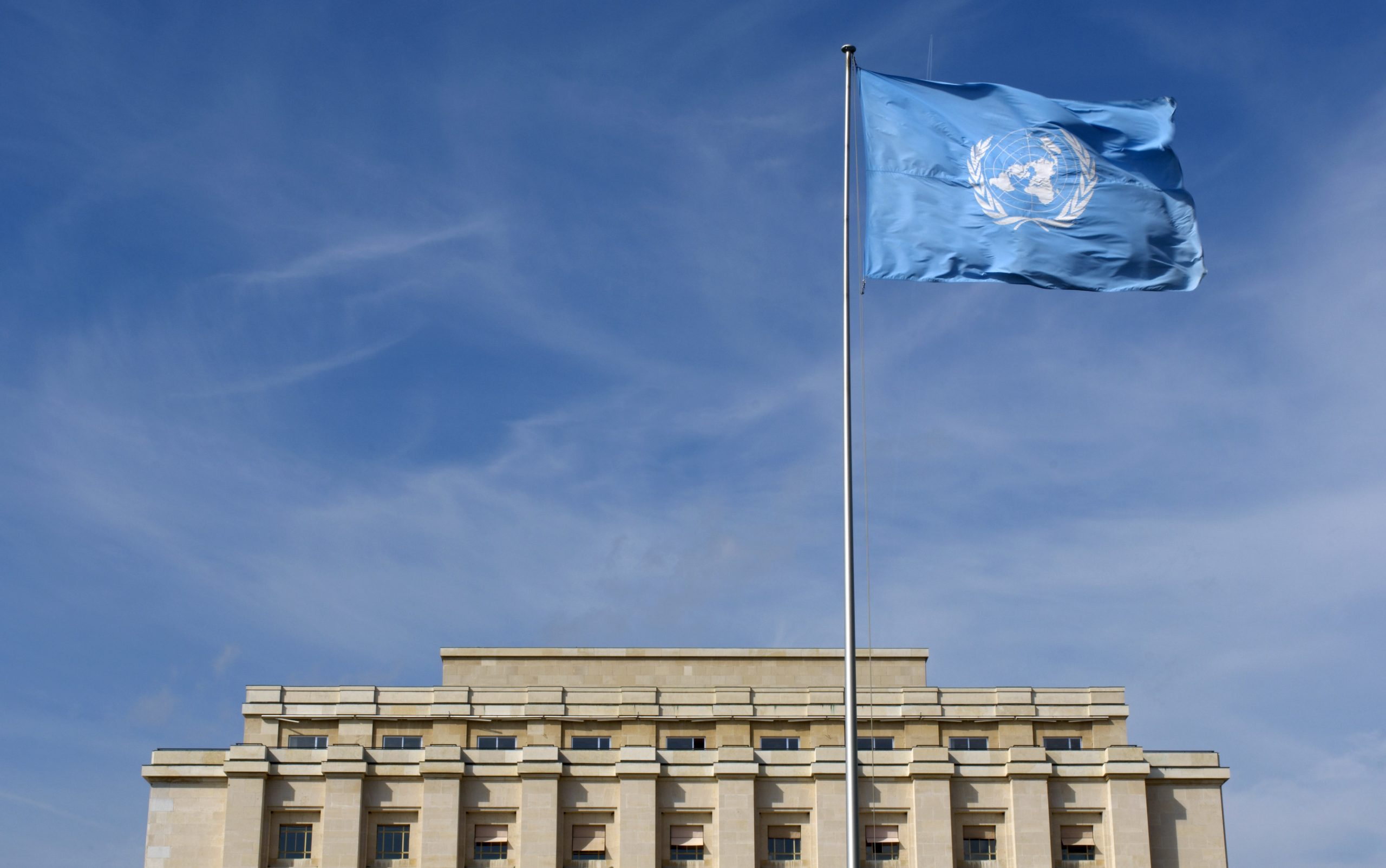Konstantinos Komaitis’ statement to the UN Informal Interactive WSIS stakeholder consultation
Konstantinos Komaitis’ statement regarding the progress and challenges of implementing the goals from the World Summit on the Information Society.
Konstantinos Komaitis’ statement to the UN Informal Interactive WSIS stakeholder consultation

The United Nations will hold the World Summit on the Information Society (WSIS) from July 7th- July 11th, 2025, in Geneva, Switzerland. Co-hosted by the ITU and the Swiss Confederation, the event continues a multistakeholder UN process on digital governance and cooperation with a vision of fostering people-centered, inclusive, and development-oriented information and knowledge societies.
The following statement is from Konstantinos Komaitis, the Resident Senior Fellow with the Atlantic Council’s Democracy + Tech Initiative at the Digital Forensic Research Lab (DFRLab).
Thank you, Ambassador Janina. I would also like to thank you and Ambassador Lokaale for facilitating this process.
My name is Konstantinos Komaitis and I am a resident senior fellow with the Atlantic Council’s Democracy and Tech Initiative. Today, I speak in my personal capacity.
In 2005 I was in Tunis for the second phase of WSIS and, since then, I have followed closely its evolution.
Over the past two decades, the aspiration for a people-centred, inclusive, and development-oriented Information Society has undeniably advanced, yet its realization remains uneven.
Significant progress has been made. Digital technologies have become more accessible, enabling transformative improvements in education, healthcare, governance, and economic opportunity. The proliferation of mobile connectivity and digital services has empowered millions, bridging gaps in access and voice. However, disparities persist. Nearly 2.6 billion people remain offline—predominantly in the Global South—highlighting a digital divide that increasingly mirrors and amplifies existing inequalities.
Today, the priorities for implementing WSIS outcomes are twofold: equity and resilience. First, we must ensure equitable access to digital infrastructure, digital literacy, and meaningful connectivity. Second, as technologies evolve rapidly, we must develop resilient, rights-based governance frameworks that safeguard human dignity, privacy, and other democratic values.
Yet, challenges remain profound. Fragmentation of digital governance, data monopolies, misinformation, cyber insecurity, and the weaponization of digital tools are growing threats to the inclusivity and development-orientation WSIS envisioned. At the same time, governance is increasingly fragmented, mainly due to geopolitical tensions and the lack of collaboration. Efforts to maintain an open, interoperable and global Internet are under strain.
In this context, supporting and strengthening the multistakeholder model is crucial and the São Paulo Multistakeholder Guidelines provides a useful reference. Multistakeholder dialogue can help establish shared norms, reduce policy fragmentation, and build trust. The implementation of the GDC should be anchored in the multistakeholder process and the community of the Internet Governance Forum (IGF).
To this end, the IGF must be safeguarded. For 20 years, the IGF has stood as a resilient platform for multistakeholder governance. While other processes have faltered, the IGF has endured. It has provided a safe and inclusive space for stakeholders from around the world to engage in dialogue on complex and often contentious issues. It is a living expression of the WSIS spirit. After December, the IGF must emerge stronger, with a renewed commitment to its sustainability—both financial and political.
In conclusion, I would like to remind everyone that the WSIS vision remains as relevant as ever. Unlike the GDC which was done primarily by states and for states, WSIS stands as a testament to the power of multistakeholder collaboration and a reminder that the Internet and digital technologies exist first and foremost to serve people. As you move forward, I encourage you to promote meaningful and fully transparent multistakeholder participation by ensuring that all stakeholders are equally and concurrently involved.
Thank you.
Dr. Konstantinos Komaitis
Cite this statement:
Konstantinos Komaitis, “Konstantinos Komaitis’ statement to the UN Informal Interactive WSIS stakeholder consultation,” Digital Forensic Research Lab (DFRLab), June 12, 2025, https://dfrlab.org/2025/06/12/konstantinos-komaitis-statement-to-the-un-informal-interactive-wsis-stakeholder-consultation/.

